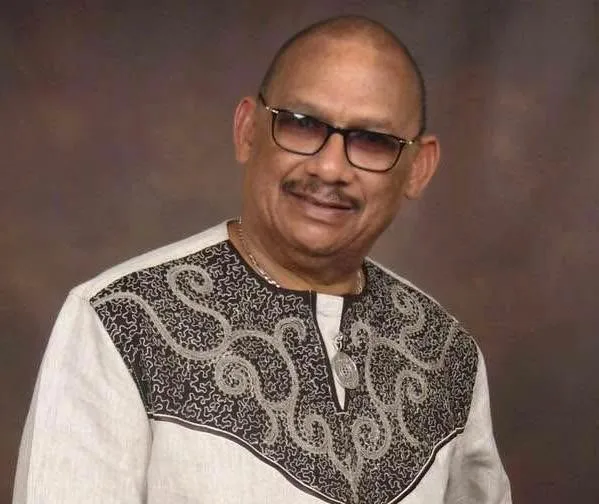Copyright tribuneonlineng

The Independent Shareholders Association of Nigeria (ISAN) on Thursday held its 8th Triennial Delegates Conference at the NECA House, Lagos, bringing together top policymakers, regulators, investors, and business leaders to deliberate on strategies for achieving Nigeria’s ambition of becoming a $1 trillion economy by 2030. The conference held in Lagos, themed “Nigeria: Towards a $1 Trillion Economy by 2030,” provided a platform for robust dialogue on the nation’s economic trajectory, with discussions spanning financial inclusion, corporate governance, insurance reform, and cybersecurity resilience. In his welcome address, the National Coordinator of ISAN, Mr. Moses Igbrude, underscored the crucial role of shareholders in promoting transparency, accountability, and ethical corporate governance, describing these as essential pillars for sustainable economic growth. He noted that the gathering was not merely ceremonial but a forum for shaping policies and sharing ideas that would drive national prosperity. According to him, “This conference provides a platform for us to engage in meaningful discussions, share knowledge, and shape policies that will drive our nation’s economic growth. As shareholders, our duty extends beyond dividends; we must contribute to building a more stable, prosperous economy.” Mr. Igbrude expressed gratitude to the partners, sponsors, and speakers who contributed to the success of the event and formally declared the conference open, calling on all participants to collaborate and commit to Nigeria’s economic advancement. Addressing the delegates, the Director of Inspectorate at the National Insurance Commission (NAICOM), Mr. Ajibola Bankole, delivered a paper titled “The Strategic Role of Insurance in National Development,” where he emphasized that insurance plays a pivotal role in fostering economic stability, encouraging investment, and building resilience against shocks. Describing insurance as the confidence to invest, to innovate, to create, and to build for the future, Bankole lamented that Nigeria’s insurance penetration remains below one percent of GDP, which he said highlights the need for urgent action to unlock the industry’s full potential. Bankole highlighted the Nigerian Insurance Industry Reform Act (NIIRA) 2025 as a landmark achievement aimed at strengthening corporate governance, enhancing capital adequacy, and protecting consumers, while explaining that the reforms are designed not only to enforce compliance but to create a transparent, competitive, and investment-friendly market capable of supporting the government’s broader economic transformation agenda. “The NIIRA 2025 introduces far-reaching provisions designed to create a transparent, competitive, and investment-friendly insurance market. These reforms are not just about compliance, they are about confidence, stability, and long-term value creation,” he said. He also called for stronger collaboration among insurers, shareholders, and policymakers to unlock opportunities in critical sectors such as health, agriculture, and infrastructure, noting that a vibrant insurance sector could serve as a major catalyst for sustainable development and economic inclusion. Cybersecurity expert, Dr. Martin Ikpehai, while speaking on the topic “Securing and Protecting the $1 Trillion Economy Against Cyber Terrorism by 2030,” warned that Nigeria’s economic ambitions could be severely undermined without robust cybersecurity frameworks to protect its digital infrastructure and financial systems. Drawing lessons from Australia’s experience in strengthening its digital economy, Dr. Ikpehai emphasized that cybersecurity investment is not a cost but an enabler of growth and investor confidence. He explained that to achieve a trillion-dollar economy, Nigeria must embed cybersecurity into every aspect of its economic planning. He recommended the establishment of national cybersecurity standards, the strengthening of incident response systems, and the promotion of public–private collaboration in tackling emerging digital threats. He also called for increased investment in cyber education and workforce development, as well as measures to secure emerging technologies such as artificial intelligence, Internet of Things, and 5G infrastructure. “To achieve a trillion-dollar economy, Nigeria must embed cybersecurity into every aspect of its economic planning. Digital resilience is now synonymous with economic resilience,” he said. At the conference, participants agreed that achieving the $1 trillion economic milestone would require strong policy consistency, sound corporate governance, innovation, and deliberate investment in human capital. Speakers emphasized the importance of synergy between the government, regulators, and private sector players in driving sustained economic progress. Mr Igbrude reaffirmed ISAN’s commitment to promoting responsible investing and protecting the interests of shareholders in Nigeria’s corporate landscape. “Let us seize this opportunity to work together towards a brighter economic future for Nigeria. Our collective action today will determine the prosperity of tomorrow,” he said.



